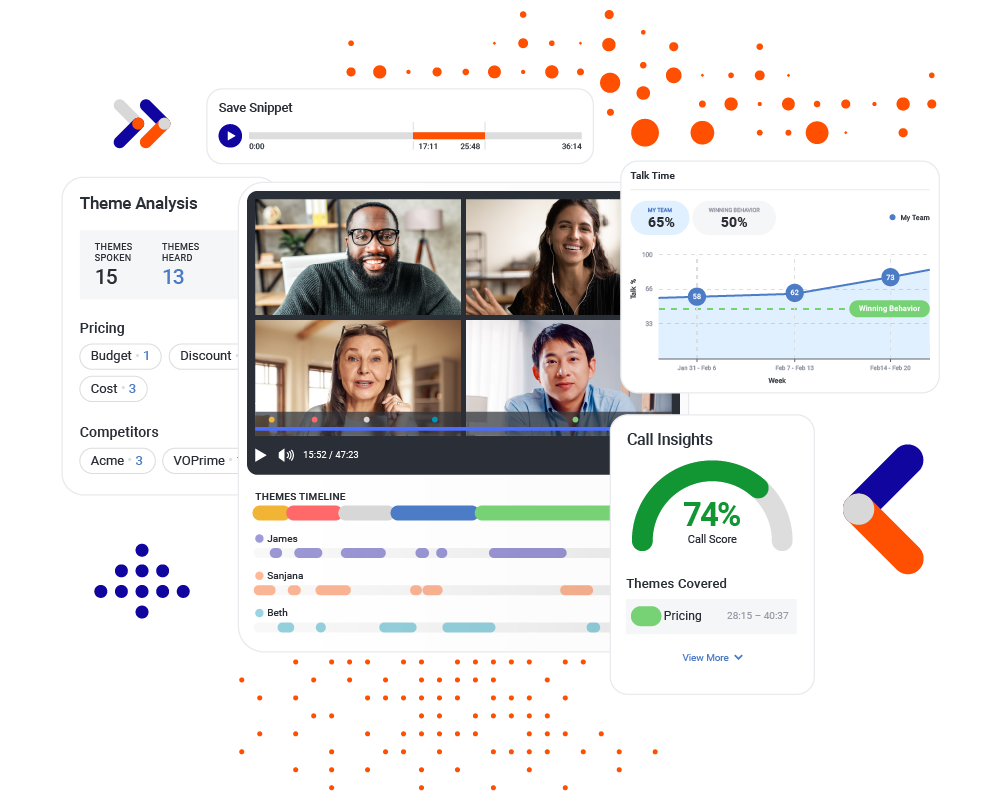Technology Training for Recruiters by Menemsha Group
Menemsha Group provides technology training including tech certification for technical recruiting professionals to expand their knowledge of enterprise information technology (IT) and improve fill rates.
Our technology training for recruiters enables your team with highly relevant and valuable information so they can best serve candidates and customers alike.
Our technical recruiter certification courses allow your team to quickly demonstrate credibility and create a valuable candidate and customer experience, efficiently and effectively.
Through our library of online technology training courses, and through our assessments, experiential learning exercises, and Instructor-Led Training (ILT), we enable tech recruiters with the technical knowledge to effectively engage, interview, and qualify IT professionals.

Technology Training Courses Provided by Menemsha Group
At Menemsha Group, we offer multiple tech recruitment certification courses and technology training for recruiters. Get a sneak peek at our courses below, as well as a look at what’s coming soon.
Introduction to the Software Development Lifecycle (SDLC)
Effectively interviewing, screening, and placing IT professionals requires a thorough understanding of the process engineering teams follow to design, develop, test, deploy, and maintain software applications. In our course, Introduction to the Software Development Lifecycle, tech recruiters learn:
- How project teams mitigate risk and keep projects on schedule and on budget
- The different phases of the SDLC
- The activities performed during each phase of the SDLC
- The work artifacts and deliverables produced during each phase of the SDLC
- The roles and responsibilities of each team member during each phase of the SDLC
- Key interview questions to qualify candidates based on role, responsibility, and phase of the SDLC
Introduction to Software Development and Project Management Methodologies
Tech recruiters are taught the differences between Waterfall and Iterative methodologies, and learn the key components of Agile including Agile frameworks, Scrum, Kanban, and XP. Participants of this course walk away with the ability to:
- Effectively qualify candidates requiring knowledge and experience working in a Waterfall, Interactive, and Agile environment
- Effectively qualify candidates requiring knowledge and experience working within the Scrum, Kanban, and XP frameworks
- Explain the common Agile approaches, including Kanban, Scrum, and Extreme Programming (XP)
- Engage candidates in a dialogue discussing the key elements of Scrum including the key roles, responsibilities, events, and artifacts
- Ask customers more informed questions when taking job orders
The Recruiter's Guide to Understanding, Screening and Qualifying Full-Stack Software Developers
In this program, IT recruiting professionals are introduced to the key components that make up a tech stack, including the tools, programming languages, frameworks, libraries, and other technologies that work together to build digital products and solutions. Participants who complete this program will be enabled with the competencies to:
- Explain the role and purpose of a front-end tech stack
- Apply relevant technical screening questions to qualify candidates for the three key technologies that make up the front-end tech stack including front-end frameworks
- Explain the role and purpose of a back-end tech stack
- Explain, screen and qualify candidates for the relevant back-end skills including operating systems, web servers, database servers, programming languages, and back-end frameworks
- Distinguish the differences between front-end development and back-end development
- Understand and recognize the differences between the most common tech stacks, LAMP, MEAN, MERN and MEVN and apply relevant screening questions to qualify candidates
This program includes thirteen lessons, ten job aids including sample interview screening questions (and answers) and a thirty-one question final exam.
The Recruiter’s Guide to Understanding, Qualifying and Placing DevOps Engineering Professionals
DevOps has taken over the IT industry and changed the way organizations develop software products. Not only are DevOps professionals in high demand, DevOps skills are expected to be one of the fastest-growing skills in the workforce. This course is the first step in understanding DevOps and how to screen and qualify DevOps engineering professionals.
This course explores DevOps as a cultural movement, including a brief history and how DevOps works, the DevOps lifecycle and key concepts and principles including the DevOps toolchain and how organizations structure DevOps teams.
Participants will learn:
- The essential characteristics of a DevOps model including a culture of shared responsibility, transparency, and embracing failure.
- The importance of CI/CD, continuous testing, continuous monitoring, continuous feedback and continuous operations
- The value of the DevOps tools chain including the most popular tools for each stage of the DevOps pipeline
- The importance of “shifting-left,” infrastructure-as-code, test driven development, behavior driven development, microservices, DevSecOps and policy-as-code
- DevOps team structures, roles and responsibilities
- Technical interview questions for screening and qualifying DevOps professionals
The Recruiter’s Guide to Understanding and Placing Cloud Computing Professionals
This course is designed for IT recruiters who want to gain technical knowledge of cloud computing including how and why cloud computing has revolutionized and transformed business. Participants of this course will learn the benefits of cloud computing, the three main cloud computing deployment models including Infrastructure as a Service, Platform as a Service, and Software as a Service. Participants will also learn:
- Components of cloud architecture including (virtualization, multi-tenancy and resource pooling, network, storage, security and more)
- Types of cloud architecture (public, private, hybrid)
- Cloud team structure, including roles, responsibilities, and skills
- How to interview cloud architects and cloud engineers
How to Interview, Screen, and Qualify a Business Analyst
Research from IDC states that data is growing from 45 zettabytes in 2019 to a projected 175 zettabytes by 2025. In response, organizations continue to adopt a data-driven culture to innovate and create new products and revenue streams, gain a competitive advantage, and drive organizational change. For these reasons, the value of a Business Analyst is at an all-time high.
Tech recruiters are taught the discipline of business analysis. They discover the role the Business Analyst plays in identifying and articulating the need for change in how a business operates and how they facilitate that change. Tech recruiters also learn how Business Analysts leverage insights from data to identify new business opportunities, better serve customers, grow revenue, improve operations, and more.
Other key learning objectives include:
- The primary role and responsibilities of a Business Analyst
- The common activities Business Analysts participate in
- The common challenges a Business Analyst faces in their role
- The common work artifacts created by a Business Analyst
- The top skills and critical tools utilized by Business Analysts
- The key interviewing questions to screen and qualify a Business Analyst
Coming Soon: Additional Technology Training Courses for Recruiters
Course launch dates will be announced soon for these upcoming courses:
- Project/Program Management
- Big Data, BI and Analytics
- Cyber Security
Sign up for our newsletter now to stay informed about tech recruiter training best practices and to receive course launch announcements.
Subscribe Now





